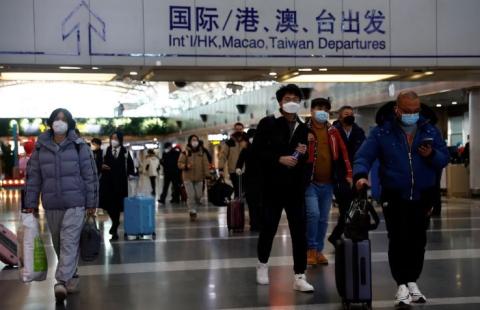
More regions are imposing stricter social restrictions amid a surge in infections — many of which have been imported from badly hit areas including Jakarta
JAKARTA: Indonesia is hoping to reopen the economy and resume “normal life” by July, according to government officials.
Doni Monardo, chief of Indonesia’s COVID-19 task force, said earlier this week that the government expects to see a decline in new cases from June, after ramping up testing in April and May and implementing aggressive contact tracing and stricter isolation measures for people exposed to the virus. “In July we would be able to start a normal life again,” he said.
The lead expert at the task force, epidemiologist and public health expert Wiku Adisasmito, stressed that minimizing the risk to human life must take precedence over reopening economic activity, which has come to a halt since the government introduced social distancing measures in mid-March.
“I want to make sure that there is no trade-off between the economy and public health. We know how to bring the economy back to life, but what we don’t know is how to bring our deceased patients back to life,” Adisasmito said in an online press briefing on Thursday. “We are now in process of analyzing and mapping the scenarios to restart the economy.”
More regions are imposing stricter social restrictions amid a surge in infections — many of which have been imported from badly hit areas including Jakarta. There have been more than 10,550 confirmed cases of COVID-19 in Indonesia as of May 1.
West Java Governor Ridwan Kamil said on Wednesday that leaders in all 17 regencies and cities in the province have agreed to submit a proposal to the Ministry of Health for large-scale restrictions across the province, which has so far only imposed strict measures in areas that adjacent to Jakarta.
The governor said he expects the ministry to approve the proposal early next week.
According to Monardo, the government is not in favor of enforcing a nationwide lockdown, which he claimed had resulted in “widespread outbreaks posing enormous risks” in “some densely populated regions and countries.”
“The decision not to choose a lockdown was a very good measure as we can maintain a balance between paying attention to health and socio-psychological aspects,” he said, adding that the restrictions in Jakarta — which have been in place since April 10 and have now been extended until May 22 — have had a positive effect, with COVID-19 cases in decline in the capital city.
While Jakarta recorded 142 new cases on Friday, after reporting less than a hundred daily infections over the preceding few days, the city’s official daily death toll from the disease has decreased consistently since mid-April.
Data from Jakarta’s coronavirus website showed that the number of burials taking place in accordance with COVID-19 protocols has been declining since April 22, when Jakarta Governor Anies Baswedan announced that restrictions in the city would be extended for another month to help flatten the COVID-19 curve further.












